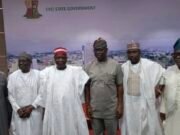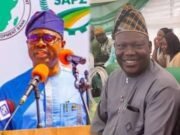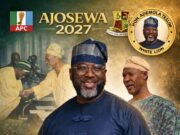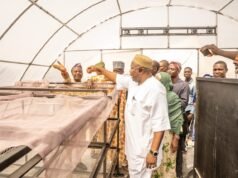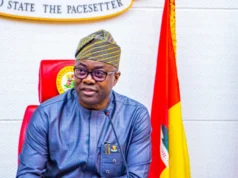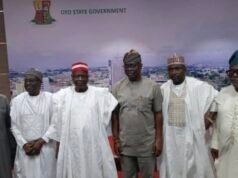Sixty years is a blip in the ocean of time when the history of nations is written. The blink of an eye is like the passing of an era. But 60 years in the life of an institution is a lifetime. This is a personal witness account of a day in the life of the first television station in Africa, the Western Nigeria Television Station, (otherwise known as the WNTV), during its first 20 years of service. In October, Nigeria marks 60 years of the founding of the first television broadcasting station in Africa. The anniversary also marks 60 years since the Western Nigeria regional government of Chief Obafemi Awolowo incorporated the new television station with the earlier established radio station, the Western Nigeria Broadcasting Service(WNBS), to become the Western Nigeria Broadcasting Corporation. For two decades after this visionary enterprise, the WNBCwould blaze an unparalleled trail in the annals of Nigeria broadcasting. This incredible feat established the radio and television stations of the WNBC as the most innovative, the boldest, the most aggressive, fearless, and arguably, the most independent broadcasting station in Nigeria, if not all of Africa. This is not mere hyperbole.
In this essay, I recall some of the most profound stories, events, and personalities that shaped the legacy of the broadcasting network in its early years. These stories are interwoven with the cauldron of regional and national politics that engulfed Nigeria during the first two decades of its independence from British colonial rule beginning October 1, 1960.
I joined the WNBC on January 2, 1976, as an editor assigned to the radio news desk. This was a position that involved supervisory oversight and editorship of the daily news production activities of the station. At the time, I was only one of three or four news desk editors running shifts of eight to 12 hours under the leadership of two principal editors, a Controller of News and Current Affairs, and a Director of News and Current Affairs. This was a particularly momentous period in the life of the station as it was undergoing a major overhaul in its management.
When I joined the WNBC, a new, younger, dynamic, and innovative team had just been installed in the preceding months. The management overhaul was made at the time of the revolutionary purges of the public service that took place all over Nigeria in the wake of the coup d’état that brought General Murtala Muhammed to power on July 29, 1975. Muhammed had launched a campaign of accountability and efficiency in the public administration of Nigeria.
At Ibadan, the new leadership was led by the bright, urbane, and soft-spoken engineer, Vincent I. Maduka, as General Manager. Other members of this new management team included: Yemi Farounmbi, Director of Personnel Administration; Kunle Adeleke, Director of News and Current Affairs; Bayo Sanda, Director of Programmes; O. Winjobi, Director of Engineering; and a director of finance.
Within weeks of my employment, I was involved in the drama of a broadcasting station being taken over by army rebels in a military coup d’état. On February 13, 1976, the military head of state, Muhammed, was assassinated in Lagos by insurgent army officers in an attempted coup to overthrow the government. The attempted coup was led by Lt. Col. Buka S. Dimka. The coup was foiled as troops loyal to Muhammed fought to quash the rebels and regain control of the National Broadcasting Company as they consolidated control of Dodan Barracks which at the time was the seat of government.
Whereas the leaders of the abortive coup were flushed out of their captured positions in Lagos and were in flight, a faction of the rebel force remained in control of the WNBC. The Dimka rebels had stormed the broadcasting stations early that morning, seized the radio studio and forced the station engineers to broadcast a copy of the rebel recording announcing the overthrow of the government.
The murder of Muhammed on February 13 was a watershed moment for many Nigerians. Muhammed was a controversial military officer before coming to power in the coup of July 29, 1975.To some Nigerians, he was a hero of the civil war. To others, he was an anti-hero. He first burst into the consciousness of many Nigerians when troops of the breakaway Republic of Biafra overran and captured the Mid-West Region on August 9, 1967 and got within 80 miles of Lagos, the federal capital. As panic gripped Lagos, Muhammed was given command of the Second Division of the army.




